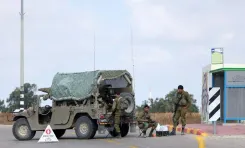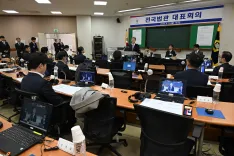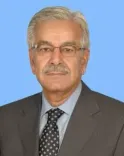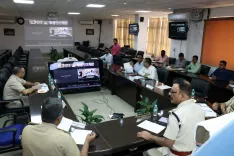Did Iran Really Identify a Secret Nuclear Facility?

Synopsis
Iran's Foreign Minister dismisses claims by Fox News about a hidden nuclear facility. As diplomatic talks resume, tensions rise with military readiness emphasized. What does this mean for future negotiations?
Key Takeaways
- Iran denies claims of a secret nuclear facility.
- Diplomatic talks with the US resume amid heightened tensions.
- Military readiness highlighted by Iranian officials.
- US sanctions continue to complicate negotiations.
- Iran maintains it is not pursuing nuclear weapons.
Tehran, May 9 (NationPress) Iranian Foreign Minister Seyed Abbas Araghchi on Friday refuted a report from Fox News that alleged the discovery of a new hidden nuclear facility in the Semnan province.
In a post on X, Araghchi dismissed the "Very Scary Satellite Images" claimed by Fox News as part of an Israeli strategy to disrupt the upcoming indirect discussions between Tehran and Washington.
"As expected, more Very Scary Satellite Images are being released just as Iran-US indirect nuclear negotiations are about to resume," Araghchi stated.
According to Fox News, they had acquired exclusive satellite images allegedly revealing an undisclosed Iranian nuclear weapons site, a 2,500-acre area referred to as the "Rainbow Site," which the network claimed has been masquerading as the chemical manufacturer Diba Energy Siba and has been operational for over a decade, as reported by Xinhua news agency.
This denial comes just before the fourth round of Oman-mediated indirect discussions focused on Iran's nuclear program and US sanctions alleviation. So far, delegations from both nations have convened three times: twice in Muscat on April 12 and April 26, and once in Rome on April 19.
On Thursday, a senior Iranian military leader noted that Iran favors diplomatic solutions to the nuclear dilemma but is also prepared for conflict if provoked, according to the official news agency IRNA.
"Our priority concerning the nuclear issue is diplomacy and fairness, distancing ourselves from any atmosphere of threats. However, we are equipped for any war, regardless of its scale," said Chief Commander of Iran's Islamic Revolution Guards Corps, Hossein Salami, during a commemoration in the northeastern city of Mashhad.
Salami emphasized that Iran, driven by its political will, does not pursue the development of nuclear weapons, excluding such armaments from its defense strategy.
The United States, which has faced "bitter experiences" of meddling in other nations, has shown itself to be unreliable and incapable of honoring its commitments, Salami remarked, warning that if threatened, Iran would be ready for conflict.
"If you make a wrong move, we will unleash hell upon you," he stated.
Salami's comments followed three rounds of indirect talks between Iran and the US, mediated by Oman throughout April, and in the wake of new US sanctions imposed in late April on various individuals and entities in Iran and other countries.
The fourth round of Iran-US discussions, initially scheduled for May 3 in Rome, was postponed due to what Oman termed "logistical issues."









